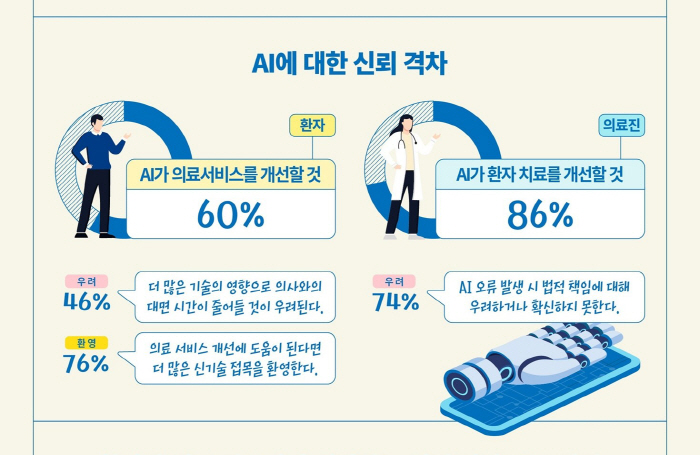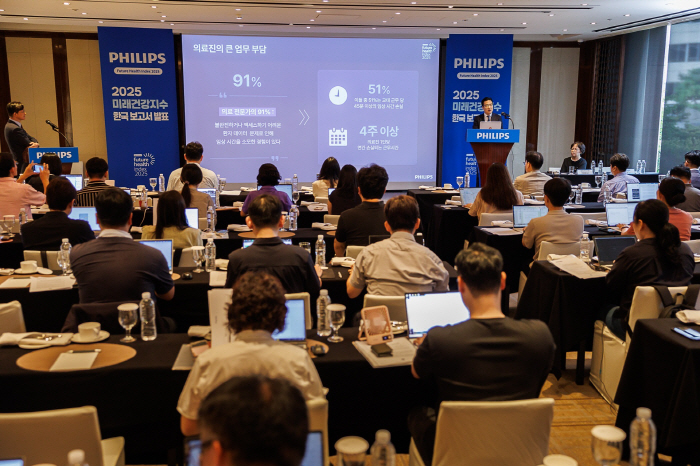86% for medics vs 60% for patients...Differences in positive perceptions of healthcare AI
Aug 27, 2025
|
This is the main result of Phillips' announcement at a press conference at the Westin Chosun Hotel in Jung-gu, Seoul on the 27th 'Future Health Index 2025 Korea Report'
The report, which marks its 10th anniversary this year, conducted a survey of more than 1,900 medical experts and more than 16,000 patients in 16 countries around the world, including Korea, to shed light on the "difference in trust between patients and medical staff in healthcare AI." In our country, 100 medical professionals and 1000 patients participated in the survey from December 2024 to April 2025.
As a result of the survey, it was found that domestic medical sites are suffering from delays in treatment and administrative inefficiency. 53% of patients in Korea experienced waiting for specialist treatment, and the average waiting period reached 40 days. In addition, 91% of healthcare professionals said they had experienced clinical time wasted due to issues with incomplete or hard-to-access patient data, and half (51%) of them lost more than 45 minutes of work per shift and more than four weeks of work per year per healthcare staff.
Under these circumstances, healthcare professionals expected that correct implementation of AI would have a positive impact on healthcare work, including greater patient care acceptance (92%), shorter waiting times (91%), accurate and timely medical intervention (89%), and automation of repeatable tasks (85%). In addition, innovations in preventive medical care through AI-based predictive analysis and remote patient monitoring are expected to enable life-saving (90%), reduction in acute or emergency medical treatment (86%), and reduction in hospital admission rates (84%).
There were differences between medical staff and patients in perceptions of healthcare AI. While 86% of domestic medical staff predicted that AI would improve patient treatment outcomes, only 60% of patients responded positively. Patients were concerned that face-to-face time with doctors would be reduced (46%) as the technology introduction expanded, and medical experts were concerned that legal responsibility was unclear (74%) in the event of an AI error. In addition, even though 84% of healthcare professionals are involved in developing new technologies, only 46% felt they were designed to reflect their needs.
In this regard, the report also considered what is needed to bridge the trust gap between patients and medical staff in healthcare AI. Patients cited benefits that make their perception of AI more positive, such as fewer mistakes (50%) due to AI, making medical expenses more affordable (43%), and helping improve health (40%), and medical staff wanted clear guidelines on how to use AI and restrictions (39%) and clear regulations on legal responsibilities related to AI use (36%) as necessary factors for building trust in AI.
As a way to strengthen trust in healthcare AI, Phillips proposed ▲human-centered AI design ▲ strengthening cooperation between humans and AI ▲ proving efficacy and fairness ▲ establishing clear guidelines ▲ establishing partnerships between various fields.
Choi Nak-hoon, CEO of Philips Korea, said "Increasing trust in medical AI accelerates innovation and provides practical benefits for both medical staff and patients."Philips will continue to work with various stakeholders to ensure that AI can be used responsibly and inclusively in the domestic medical field."."
|
This article was translated by Naver AI translator.















